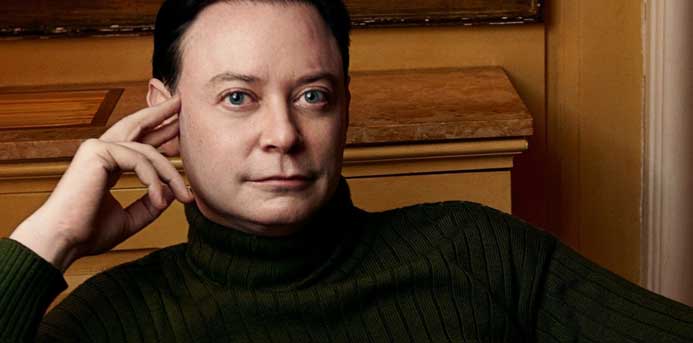It’s that time of year when parents reexamine their children and find themselves asking, “Who is this stranger living in my home?”
For so many parents, that feeling of, “Who are you?” when looking at their children is like an inescapable déjà vu. And it’s a universal experience. “All of us have children who sometimes seem very alien,” says author Andrew Solomon, who presented his bestseller “Far from the Tree” to a packed auditorium for a Family Action Network (FAN) event. “Every family experiences difference and has moments where they are shocked and bewildered by their own child.”
In his talk, “Love, No Matter What,” Solomon expressed how parental acceptance of their children, as shining or shocking as their differences may be, is key to fostering the development of a child’s identity.
“Far from the Tree” chronicles the experiences of 12 families dealing with a spectrum of differences. From deafness to disability to criminal behavior, Solomon explores the development of identity outside the conditions of family. Solomon’s question is one these parents were all faced with: “How do you nurture a child who may be unlike anything you’ve encountered before?”
Through his research, Solomon determined that there are two types of identity: vertical and horizontal. Vertical identities are those passed down from parent to child—ethnicity, language, often religion and nationality—while horizontal identities are shared between like peers rather than between parent and child, such as homosexuality, physical disability or psychopathy.
For children born distinct from their parents, like a deaf child born to hearing parents or a prodigy born into an average family, there is the haunting question of how to fix an issue—or if an issue should be fixed.
“Parenthood abruptly catapults us into a permanent relationship with a stranger,” Solomon writes. “And the more alien the stranger, the stronger the whiff of negativity.” When faced with a challenging disability, should a parent pursue every educational and medical avenue to ease a difficult path, or should the goal be acceptance and growth?
“Love should be there from the very beginning, and acceptance takes time,” Solomon says. A dedicated solution to correct a difference, like the dyslexia that Solomon himself endured, can be beneficial to children. But to attempt to fix an inherent difference, like sexuality or dwarfism, can be detrimental to the child’s development. “(Parents) need to recognize that there are many ways to lead a happy life, and the parents’ way is not the only way of doing it. Be open to discovering the child’s way.”
For children growing in privileged environments, the impetus of bewildered parents is to fix or change the circumstances. “I think parents that are used to being able to repair anything that goes wrong often have a harder time accepting that than parents that are used to being out of control in their own lives,” Solomon says. “Fixing is the illness model; acceptance is the identity model; which way any family goes reflects their assumptions and resources,” he writes.
There is an inherent loneliness in difference, of coming up askew of the expectations of wide-eyed and hopeful parents; but if those parents are adapting, supporting, loving and, ultimately, accepting, children can grow from such variance. “Everyone has a defect,” Solomon writes. “Everyone has an identity, and they are often one and the same.”
Loving, Solomon says, is easy. It’s acceptance and, eventually, celebration of difference that takes time and commitment. Accepting strengthens the parent-child relationship and contributes to a child’s acceptance of self. As a parent, that’s the best gift you can give your child: teaching him to love himself.
FAN will resume its speaker series in the new year, beginning with Wharton School of Business professor and best-selling author Adam Grant January 7 and 8.
Photo by Annie Leibovitz

